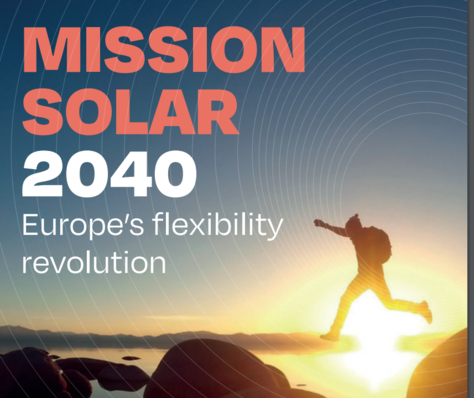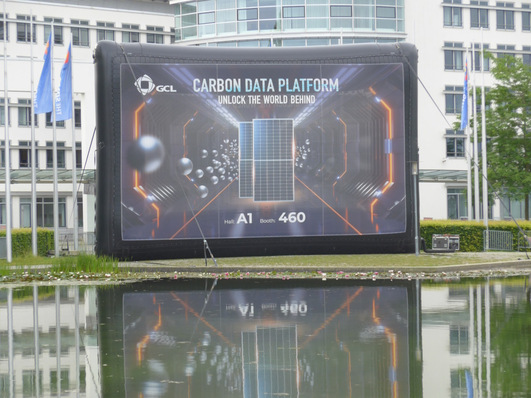The event, that takes place in Munich from June 20-22, includes a number of half-day Compact Energy Forums, which will be held at booth 340 in hall C2. These will focus on topics including neighborhood energy concepts, energy management, energy services and cogeneration systems. They are the ideal place to swap expertise and ideas and are aimed at professional energy customers, planners, decision makers and facility managers working in real estate, local authorities, industry and trade.
Focus on building complexes and districts
Residential buildings and neighborhoods in cities have a particularly significant role to play in the energy transition. When it comes to energy efficiency, the focus is increasingly moving away from individual buildings to building complexes. Thanks to renewable energies, energy storage, energy management systems and smart building automation, it is now possible to make the operation of production facilities or entire districts climate-neutral. In neighborhoods, smart and efficient interaction between individual technologies within the system also offers particularly great potential for energy savings. But the federal, state and local governments — as the owners of around 186,000 buildings nationwide with annual energy costs of around 6 billion euros — also have a leading role to play in the success of the energy transition. Germany’s local governments pay around 3.4 billion euros for heat and electricity supply alone in the properties they own. And the options available to increase energy efficiency are as diverse as public buildings themselves. No fewer than four sessions at the Compact Energy Forums on June 20 will address these topics, presenting a wide range of projects and discussing the outcomes.
Energy efficiency in residential buildings, public buildings and industrial companies
The goal of significantly reducing energy consumption, or making it as cost-efficient as possible, is also on the agenda of many manufacturing companies. Well-planned energy management in accordance with the DIN EN 16247 standard, as well as the use of modern efficiency technologies in production facilities and for company buildings, can cut costs and ensure the business remains competitive in the long term. Businesses seeking to implement these measures can draw on an advanced, dynamic market for energy efficiency services and solutions, which is already enjoying strong demand. This topic will be explored in full at the Forums on June 21, including an afternoon program organized entirely by the German Federal Agency for Energy Efficiency (BfEE).
Pilot projects – Freiburg`s new city hall and the Ekostore project
An exciting energy-plus building has been developed for the new city hall in Freiburg. This will be presented by the Fraunhofer Institute on June 20 at the Forum for Municipal Properties & Public Buildings. The building is highly thermally insulated with triple glazing and external shading. The larchwood elements have integrated PV modules. Ground water is used to provide heating via heat pumps and direct cooling via a heat exchanger, supplemented by cooling units on the roof. A biogas-fired boiler covers peak loads and, in combination with solar thermal technology, ensures a reliable supply of warm drinking water. The rooms receive fresh air via a ventilation unit with highly efficient heat recovery. Heat and cold transfer in the offices takes place via concrete core activation and ceiling sails. The public spaces are mostly equipped with underfloor heating and a partial air conditioning system. The new city hall now has to prove that it can operate sustainably and contribute to grid stability as an energy-plus building. At the same Forum, Prof. Dr. Tim Rödiger will present the EKOSTORE project. This project at the Landshut University of Applied Sciences is based on the idea of combining two systems — a PV installation with electrical storage and a decentralized heat/power-generation unit (CHP) with thermal storage and a peak load boiler — to work together as a single system. In this case, the CHP is run based on the state of charge of the electrical storage system, rather than on the heating demand, as is usually the case.
Savings up to 40 percent
On June 22, first gastronomy and the hotel trade and then hospitals, clinics and care facilities will be in the spotlight at the Compact Energy Forums. The hospitality industry spends up to 10 percent of its annual turnover covering energy costs, and this figure is rising. In many hotels, decentralized heat/power-generation units would be a worthwhile investment, as would a range of modernization measures to eliminate unnecessarily energy-intensive loads. This applies similarly to the field of healthcare. The pressure on costs in hospitals is immense, as is the energy demand. Hospitals and care facilities require the most energy (48% of total demand) for ventilation technology, followed by 22% for water heating, 15% for steam generation, 7% for lighting and 8% for other purposes. According to estimates, in many cases hospital operators could save up to 40% on current electricity usage and 32% on heat.
Associations and institutions support EM-Power
A large number of associations, research initiatives, institutions and media outlets are supporting the Compact Energy Forums that will be taking place on every day of the exhibition. These supporters include the research initiative ENERGIEWENDEBAUEN, the national German association of energy consumers VEA, the real estate industry magazine Immobilienwirtschaft and the newspaper for municipal services ZfK, the energy campaign by the German Hotel and Restaurant Association DEHOGA, and the Klinergie2020 campaign by the foundation viamedica.
Many associations are also actively supporting EM-Power outside of the Forums and will be present at the exhibition. The German Association of Energy Market Innovators (bne) will have a booth in hall C2, where it will be presenting new business models that are driving the development of an interconnected energy industry bringing together a range of sectors: decentralized self-supply with storage systems, e-mobility or digital energy services.
The German association for small-scale wind energy installations, BVKW, will have a shared booth in hall C2 bringing together industry, manufacturers, technicians, planners, operators and other stakeholders and supporters in the field of small-scale wind energy.
RealFM, the German industry association for facility and real estate managers, will be looking at how its activities combine real estate and facility management tasks and create interfaces for all participants involved, and how this relates to the wider European context.
The heat supply association VfW, the leading interest group for contracting and energy services, with over 250 member companies, will once again be supporting EM-Power. (HCN)
The programs for all Compact Energy Forums are available at: www.EM-Power.eu/en.
Discover the latest innovations, join our pv Guided Tours at The smarter E Europe in Munich. Register here
Stay informed, get our free newsletter twice a week. Subscribe here
More useful information:
http://www.pveurope.eu/News/Markets-Money/Smarter-E-Award-finalists-announced
https://www.pveurope.eu/solar-modules/intersolar-award-2018-finalists-confirmed







